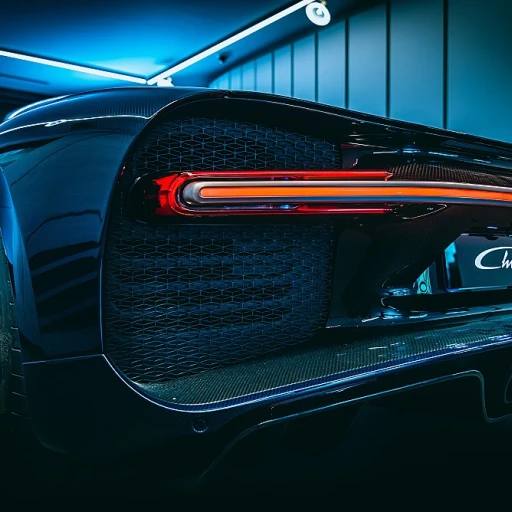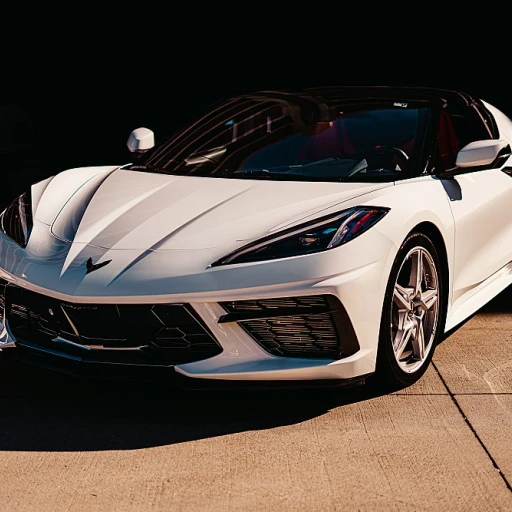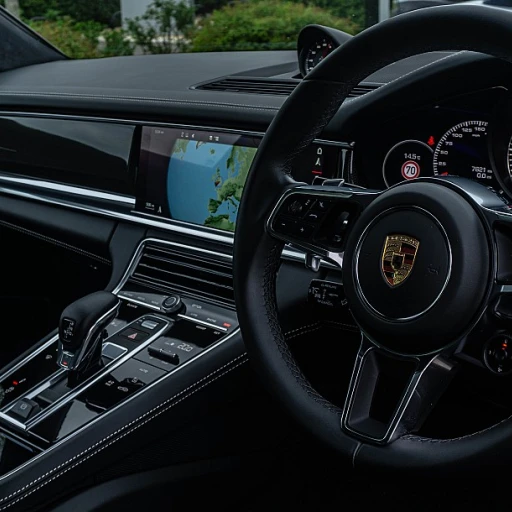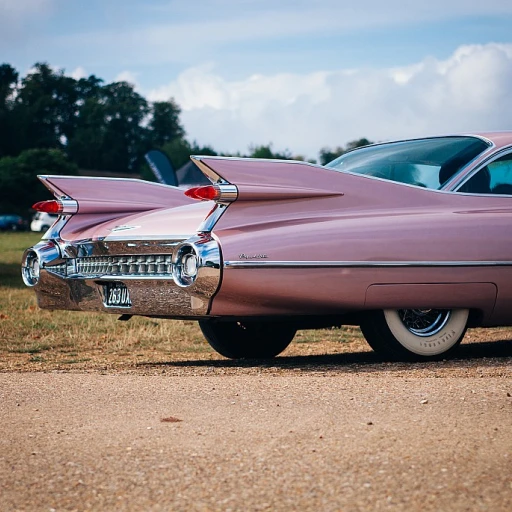
Understanding maintenance costs in the luxury segment
Why Maintenance Costs Matter in the Luxury Segment
When considering a luxury car, many owners focus on the initial purchase price or the allure of the badge. However, the real financial story unfolds over the years, as maintenance costs can vary dramatically between models and brands. Understanding these ongoing expenses is essential for anyone seeking a refined driving experience without unexpected financial surprises.
Luxury cars are engineered for performance, comfort, and advanced technology. This often means more complex systems and specialized parts, which can lead to higher maintenance costs compared to regular cars. Yet, not all luxury cars are expensive to maintain. Some models, especially those sharing components with mainstream brands like Toyota or Lexus, offer surprisingly low maintenance costs and impressive reliability over the years.
- Regular maintenance, such as oil changes and brake servicing, can be more expensive for luxury cars due to premium parts and specialized labor.
- Major repairs, if needed, can quickly escalate costs, especially for brands like BMW or Mercedes Benz, where parts and labor are at a premium.
- Some luxury models, like certain Lexus or Tesla cars, are known for low maintenance needs and fewer expensive repairs over time.
It's a common misconception that all luxury cars are expensive to maintain. In reality, maintenance cost depends on the model, year, and even the specific trim. For example, a BMW Series car may have higher maintenance costs than a Lexus or a Tesla Model, thanks to differences in reliability and parts availability.
Before making a purchase, it's wise to get a quote for regular maintenance and potential major repairs. This will help you avoid surprises and make an informed decision. For a deeper understanding of how maintenance costs impact the long-term ownership experience, you can explore the legacy and luxury of the 2012 Cadillac STS-V, which offers insights into balancing performance with manageable upkeep.
As you continue reading, you'll discover key features that help lower maintenance expenses, top models with affordable upkeep, and smart strategies to keep your luxury car running smoothly for years to come.
Key features that lower maintenance expenses
What Makes Some Luxury Cars Cheaper to Maintain?
When it comes to luxury cars, many owners expect high maintenance costs. However, not all luxury models are expensive to maintain. Several key features and design choices can help keep maintenance costs low, even for high-end vehicles. Understanding these factors can help you make smarter decisions and avoid costly surprises over the years.
- Shared Components with Mainstream Brands: Some luxury cars, like certain Lexus and BMW Series models, share parts and engineering with their parent brands (for example, Toyota for Lexus). This means more affordable replacement parts and easier access to skilled technicians, reducing overall maintenance costs.
- Proven Reliability: Brands known for reliability, such as Lexus and Toyota, often have fewer major repairs over the years. Their cars are engineered for longevity, which translates to fewer unexpected expenses and lower annual costs.
- Simple Powertrains: Cars with less complex engines and fewer high-tech features tend to have lower maintenance costs. For instance, a regular oil change or brake service on a Lexus or a base BMW Series model is typically less expensive than on a high-performance or hybrid variant.
- Availability of Aftermarket Solutions: The popularity of certain luxury models means there are more affordable aftermarket parts and maintain solutions available. This can significantly reduce the cost of ownership, especially after the warranty period ends.
- Electric Powertrains: Some electric luxury cars, like the Tesla Model 3, have fewer moving parts compared to traditional combustion engines. This can result in lower maintenance costs, as there are no oil changes or exhaust systems to worry about. However, battery replacement costs should be considered over the long term.
It’s important to note that regular maintenance, such as timely oil changes and inspections, can help avoid expensive repairs down the line. While some luxury cars are cheap to buy initially, their long-term maintenance cost can vary widely based on the factors above.
For a deeper look at how these features impact the real cost of ownership, check out this analysis on understanding the real cost of owning a Ford Shelby truck. It offers valuable insights into how design and engineering choices affect maintenance luxury and overall expenses.
Top models known for affordable maintenance
Reliable Choices for Lower Maintenance Bills
When it comes to luxury cars, not all models are expensive to maintain. Some brands and models stand out for their reliability, low maintenance costs, and smart engineering. If you are looking for a luxury car that won’t drain your wallet with every oil change or regular service, here are some top contenders that consistently receive praise for affordable upkeep over the years.
- Lexus ES and RX: Lexus, Toyota’s luxury division, is renowned for its reliability and low maintenance costs. The ES sedan and RX SUV, in particular, are often cited for their minimal need for major repairs and reasonable service intervals. Owners regularly report that these cars deliver a luxury experience without the high costs usually associated with the segment.
- Tesla Model 3: Electric vehicles like the Tesla Model 3 have fewer moving parts, which means less frequent maintenance. There’s no need for oil changes, and regular service is limited to items like tires and brakes. Over several years, the cost of ownership can be significantly lower compared to traditional luxury cars.
- BMW 3 Series: While BMWs are sometimes seen as expensive to maintain, the 3 Series bucks the trend. With proper care and regular maintenance, this model can offer a balance of driving pleasure and manageable costs. Many owners find that the 3 Series is less expensive to maintain than other European luxury cars in its class.
- Acura TLX: Acura, Honda’s luxury arm, is another brand known for reliability. The TLX sedan combines luxury features with the low maintenance costs typical of Honda vehicles. Over the years, this model has built a reputation for being a smart choice for those seeking a luxury car with fewer surprises at the service center.
- Cadillac DeVille (2000s models): For those considering a used luxury car, the Cadillac DeVille from the early 2000s is often highlighted for its affordable maintenance. Parts are widely available, and the car’s engineering is straightforward, making repairs less expensive than many European rivals. For a deeper dive into the ownership experience, check out this comprehensive look at the 2004 Cadillac DeVille.
These models are often recommended on enthusiast forums, where posts thanked times by owners highlight their satisfaction with low maintenance costs. While some luxury cars can be expensive to maintain, these options prove that you can enjoy premium features and comfort without facing high costs every year. Always remember to get a quote for regular service and check the reliability record of any model you consider. Smart choices today will save you from expensive maintain solutions down the road.
Common misconceptions about luxury car upkeep
Debunking Popular Beliefs About Luxury Car Maintenance
When it comes to luxury cars, there are plenty of myths about maintenance costs that can cloud your judgment. Many owners assume that every luxury car is expensive to maintain, but the reality is more nuanced. Let’s break down some of the most common misconceptions and clarify what really impacts your maintenance costs over the years.
- All luxury cars are expensive to maintain: While some models like certain BMW Series or Mercedes Benz vehicles can have higher maintenance costs, others—such as Lexus and select Toyota-based luxury cars—are known for their low maintenance and reliability. The brand and model matter more than the badge alone.
- Luxury means frequent major repairs: Regular maintenance, like oil changes and scheduled inspections, can keep costs predictable. Many luxury cars, especially those with proven reliability records, rarely require major repairs if maintained properly.
- Electric cars are always cheaper to maintain: Tesla models, for example, do have fewer moving parts and no oil changes, but some owners report higher costs for specific repairs or parts. It’s important to compare the total cost over several years, not just the first year or two.
- Low purchase price equals low maintenance: A cheap buy upfront doesn’t guarantee low maintenance costs. Some older luxury cars may have affordable sticker prices but can surprise you with expensive parts or specialized service needs.
- Dealer-only servicing is required: While some believe you must always return to the dealership, many independent shops now offer maintain solutions for luxury cars at a lower cost, especially for regular maintenance tasks.
Understanding these realities helps you make informed decisions about your next luxury car. Always request a quote for expected maintenance costs before you buy, and consider the model’s reputation for reliability and low maintenance. Over the years, choosing the right car can mean the difference between enjoying luxury and being burdened by unexpected expenses.
Smart ownership strategies for lower costs
Practical steps to keep your luxury car affordable
Owning a luxury car doesn’t have to mean sky-high maintenance costs year after year. With the right approach, you can enjoy the prestige of brands like Lexus, BMW, Mercedes Benz, or even a Tesla Model without being burdened by expensive maintain bills. Here are some proven strategies to help you keep maintenance costs low and reliability high:- Stick to regular maintenance: Routine oil changes, brake checks, and tire rotations are essential. Skipping these basics often leads to major repairs that are much more expensive than regular upkeep.
- Choose models with a reputation for low maintenance: Some luxury cars, especially those sharing parts with Toyota or known for their reliability, like certain Lexus models, are designed for longevity and lower cost of ownership.
- Use trusted independent service centers: While dealership service is sometimes necessary, many independent shops offer high-quality work at a fraction of the cost. Always get a quote before approving any work.
- Invest in extended warranties or prepaid maintenance plans: These can help smooth out costs over the years, especially for cars with higher bhpian join rates or those known for expensive maintain issues.
- Research parts availability: For some models, especially older or less common luxury cars, parts can be expensive or hard to find. Opt for cars with widely available, reasonably priced parts to keep maintenance cost predictable.
- Monitor for recalls and service bulletins: Staying informed about manufacturer updates can prevent small issues from becoming major repairs, saving you money and hassle.
Smart habits for long-term savings
- Drive gently: Aggressive driving increases wear and tear, leading to higher maintenance costs. Smooth acceleration and braking help your car last longer.
- Keep detailed records: Tracking every oil change, service, and repair not only helps you stay on top of maintenance but also boosts resale value when it’s time to upgrade.
- Compare insurance and maintenance quotes: Before buying, get a quote originally from multiple sources to understand the true cost of ownership for the year and model you’re considering.
- Join owner communities: Forums and groups often share maintain solutions, tips for low maintenance, and real-world experiences about which cars are cheap buy options versus those that are expensive maintain over time.
How to evaluate maintenance costs before buying
What to Look for Before You Buy
When considering a luxury car, evaluating maintenance costs is as important as checking the sticker price. Many buyers focus on the initial cost, but the real expense often comes in the years after purchase. Here’s how to make sure you’re not caught off guard by expensive maintain bills:- Research the model’s reliability: Some brands, like Lexus and Toyota, are known for low maintenance costs and high reliability. BMW and Mercedes Benz, while prestigious, can have higher maintenance cost, especially as the car ages.
- Check for regular maintenance needs: Look into how often the car will need an oil change, brake service, or other routine work. Cars with longer service intervals or included maintenance plans can save you money over the years.
- Compare quotes for major repairs: Get a quote originally from certified service centers for common repairs. This gives you a realistic idea of what you’ll pay if something goes wrong.
- Read owner forums: Communities like bhpian join and posts thanked times luxury car owners share real-world experiences about maintenance luxury and cost. These insights can reveal hidden costs or cheap buy pitfalls.
- Consider warranty and service packages: Some luxury cars, especially newer models, come with extended warranties or prepaid maintenance solutions. These can help control costs and reduce the risk of expensive maintain surprises.
- Factor in depreciation and resale value: A low maintenance car that holds its value, like certain Lexus or Tesla Model vehicles, can be a smarter investment over several years.
Using Data to Make a Smart Choice
A table can help you compare the maintenance costs of top luxury cars over a five-year period. Look for data on annual maintenance cost, frequency of major repairs, and reliability ratings. Here’s an example:| Model | Average Annual Maintenance Cost | Reliability (1-5) | Major Repairs (5 Years) |
|---|---|---|---|
| Lexus ES | $550 | 5 | Low |
| Toyota Avalon | $480 | 5 | Low |
| Tesla Model 3 | $400 | 4 | Low |
| BMW 3 Series | $900 | 3 | Medium |
| Mercedes Benz C-Class | $850 | 3 | Medium |













